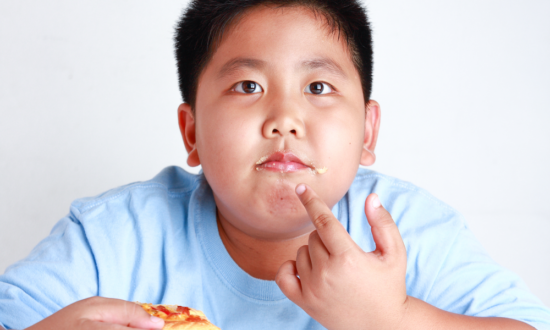Child weight gain is one of the latest health issues to be blamed on the pandemic. A new study from the Pediatric Obesity journal says that children have gained weight, lost sleep, and spent too much time on their screens during the pandemic. The study attributes these child health issues to eating snacks and sitting around doing nothing. (Parents everywhere will read this and say, “DUH. Well, I could have told you that!”)
We know all about the impact of the pandemic on our children’s health (and ours), because we were THERE. Lockdown had all of us chomping on chips and shoveling in the rocky road while binge-watching shows on Netflix. (Except for the few virtuous parents who never watch Netflix and only eat carrot sticks.)
Still and all, it’s important that we look at how the pandemic affected our children’s health habits. Our children were already in trouble with the rise in childhood obesity and overweight. Children were spending way too much time on their screens, and not enough time getting quality sleep in their beds before COVID-19. We know that these health behaviors and issues affect our children’s health and quality of life long-term, even into adulthood. It is therefore critical for parents to educate, encourage, and help children reverse any and all negative health behaviors.
Child Weight Gain Linked to Pandemic Behavior
In the recent study referenced, researchers looked at how children self-reported their food intake, exercise levels, and screen and sleep time from 2018-2020. The findings suggest that “children are less active, consume more snacks, and engage in more screen time compared to retrospective recall of pre-pandemic behaviors or self-reported behaviors.”
The results of these poor health behaviors are all too predictable. Before the pandemic, the children were found to have “accelerated weight gain during the summer months.” With the pandemic, this unfortunate trend continued into autumn, as children stayed home for virtual learning.
An even larger study published in Epic Health Research Network looked at over 5.3 million pediatric patient records to track weight gain. These researchers discovered that one in three U.S. children or 33.8 percent, exceeded their expected weight gain during the pandemic. The reason? Eating way too many “ultraprocessed foods,” according to research published by the JAMA Network, the journal of the American Medical Association. Both of these studies were published in August 2021.
Child Weight Gain and Snacking
The JAMA study was about processed food consumption in 2-19-year-olds from 1999-2018. In other words, pre-pandemic findings. Over that 19 year period, ultraprocessed food consumption rose from 61.4 percent to 67 percent in a study of 33,795 American young people. Considering all the snack foods we purchased during the pandemic, our children have no doubt surpassed even these way out percentages. And that’s a frightening thought, because it means our children are more susceptible to developing health issues including diabetes and heart disease.
So what’s a parent to do? It’s a bummer, but we have to begin with our own health habits, and set a good example, as adults. We need to eat healthier foods and fewer snack foods. We need to exercise more and find ways to have fun without our screens (preferably as a family).
Parents can also take kids with them when they stock up on food supplies. Perusing items in the grocery store and reading labels, can be educational. Show your child how you make better food choices, so they will learn how to do so, too. That doesn’t mean you (and they) can’t have any processed foods—if you make good food choices 80 percent of the time, you’re entitled to a bowl of ice cream or a couple of handfuls of chips. Just don’t go overboard, especially not within view of your children!
Shop/Snack Wisely, Get Outside, Lose the Screens
Just as you take your child to the grocery store, take your child out for a walk, play catch, or spend time together in the park. Air and sunshine are good, as is stretching our limbs. Being outside is even good for our vision, believe it or not, preventing children from becoming nearsighted.
Impose limits on screen time for your child—yes, be that mom or dad—your child’s sleep depends on it, and your child’s academic success and health depend on getting enough sleep. This means that the bedroom, at night, is a no-phone zone. Kids are too prone to answering texts—even in the middle of the night—for fear of missing out. The result is poor sleep quality, and not enough sleep at that.
We can’t make all these changes, all at once. But let us be more aware of our health behaviors and those of our children. Let’s make a start and making things better.
There’s no denying that many of us turned into depressed and anxious snack-eating couch potatoes and zombies during the lockdown. But the statistics are beginning to make themselves known and our children’s health habits have spiraled out of control. It seems it is past time to get ahold of ourselves and our children, and make serious changes in our way of life. Our health and that of our children, depends on it.
